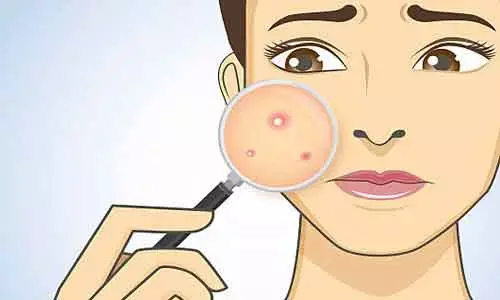- Home
- Medical news & Guidelines
- Anesthesiology
- Cardiology and CTVS
- Critical Care
- Dentistry
- Dermatology
- Diabetes and Endocrinology
- ENT
- Gastroenterology
- Medicine
- Nephrology
- Neurology
- Obstretics-Gynaecology
- Oncology
- Ophthalmology
- Orthopaedics
- Pediatrics-Neonatology
- Psychiatry
- Pulmonology
- Radiology
- Surgery
- Urology
- Laboratory Medicine
- Diet
- Nursing
- Paramedical
- Physiotherapy
- Health news
- Fact Check
- Bone Health Fact Check
- Brain Health Fact Check
- Cancer Related Fact Check
- Child Care Fact Check
- Dental and oral health fact check
- Diabetes and metabolic health fact check
- Diet and Nutrition Fact Check
- Eye and ENT Care Fact Check
- Fitness fact check
- Gut health fact check
- Heart health fact check
- Kidney health fact check
- Medical education fact check
- Men's health fact check
- Respiratory fact check
- Skin and hair care fact check
- Vaccine and Immunization fact check
- Women's health fact check
- AYUSH
- State News
- Andaman and Nicobar Islands
- Andhra Pradesh
- Arunachal Pradesh
- Assam
- Bihar
- Chandigarh
- Chattisgarh
- Dadra and Nagar Haveli
- Daman and Diu
- Delhi
- Goa
- Gujarat
- Haryana
- Himachal Pradesh
- Jammu & Kashmir
- Jharkhand
- Karnataka
- Kerala
- Ladakh
- Lakshadweep
- Madhya Pradesh
- Maharashtra
- Manipur
- Meghalaya
- Mizoram
- Nagaland
- Odisha
- Puducherry
- Punjab
- Rajasthan
- Sikkim
- Tamil Nadu
- Telangana
- Tripura
- Uttar Pradesh
- Uttrakhand
- West Bengal
- Medical Education
- Industry
Phage-based technology-new approach towards treating Acne

ROCKVILLE, Md. -Over 80% of adolescents and an increasing number of adults are affected by acne vulgaris—commonly known as "acne"—a skin condition caused by the Cutibacterium acnes bacteria (formerly Propionibacterium acnes).-Phage-based technology may be the new approach towards treating Acne. For decades, acne sufferers have relied on topical treatments containing drying agents and/or antibiotics despite a host of side effects ranging from skin irritation to the promotion of antibiotic resistance.
The Institute for Bioscience and Biotechnology Research (IBBR) recently received a Technology Assessment award from the Maryland Innovation Initiative (MII), as part of the Innovation Commercialization Program at TEDCO, to support work on a new approach to targeting C. acnes. IBBR Fellow Dr Daniel Nelson (Associate Professor, Department of Veterinary Medicine, University of Maryland, College Park) will lead the project.
Nelson is an expert in the biology of bacteriophage, viruses that infect and kill bacteria. He plans to apply his phage-based technology platform toward the development of acne treatment with a novel mechanism of action.
Phage produces proteins called endolysins that cleave the protective cell wall of their bacterial hosts. Nelson has shown that purified endolysins can puncture the cell wall and kill bacteria in seconds upon contact, making endolysins a particularly attractive platform for topical applications.
"Endolysins represent an exciting new technology with the potential to offer a potent and safe treatment for acne, with minimal side effects and low risk of inducing drug resistance," said Nelson.
The MII funding will support Nelson's work to characterize C. acnes-specific endolysins in the laboratory, develop and test delivery formulas, and begin to assess safety and efficacy in various model systems. The goal is to develop the first direct-lytic agent (DLA) against C. acnes as a new, easy-to-use, topical treatment modality for acne.
"Pursuing translational research that brings innovative science to the market is an important part of IBBR's mission," says IBBR Director Tom Fuerst. "The MII program provides critical funding that helps bridge the gap between basic research funding and commercialization."
For further reference log on to :
Hina Zahid Joined Medical Dialogue in 2017 with a passion to work as a Reporter. She coordinates with various national and international journals and association and covers all the stories related to Medical guidelines, Medical Journals, rare medical surgeries as well as all the updates in the medical field. Email: editorial@medicaldialogues.in. Contact no. 011-43720751
Dr Kamal Kant Kohli-MBBS, DTCD- a chest specialist with more than 30 years of practice and a flair for writing clinical articles, Dr Kamal Kant Kohli joined Medical Dialogues as a Chief Editor of Medical News. Besides writing articles, as an editor, he proofreads and verifies all the medical content published on Medical Dialogues including those coming from journals, studies,medical conferences,guidelines etc. Email: drkohli@medicaldialogues.in. Contact no. 011-43720751


